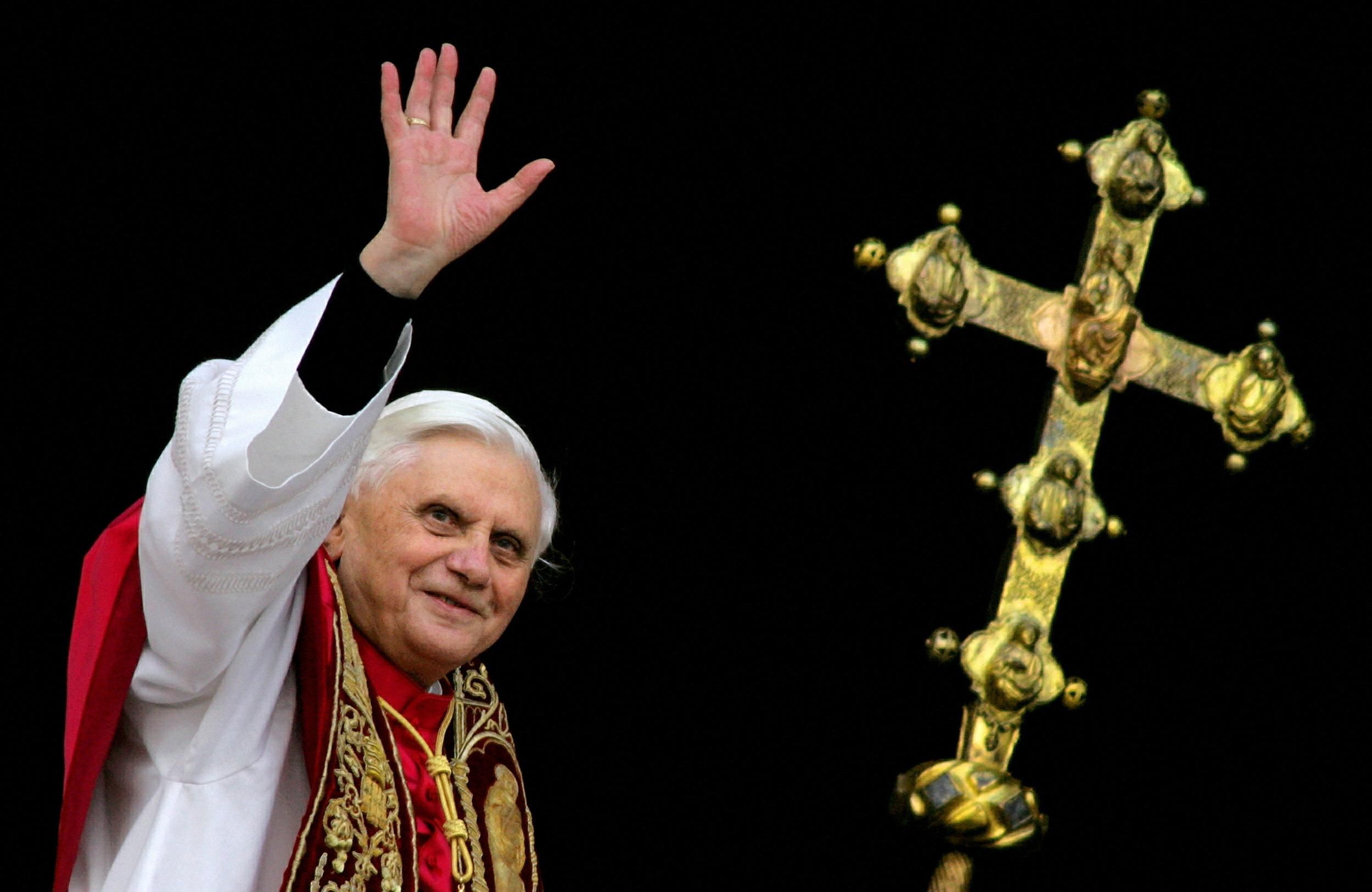Pope Benedict XVI, the first pontiff to retire in six centuries, died early Saturday at the age of 95. Benedict surprised the world in 2013 by announcing he was stepping down from the papacy due to his advanced age. The first German pope in 1,000 years, Benedict took up the mantle of his close friend and predecessor, Pope John Paul II, and is credited with starting to reform Vatican finances and disciplining priests in Latin America who promoted Marxist ideology. Along the way, his strict adherence to church doctrine earned him the nickname “God’s Rottweiler.” Benedict’s papacy was plagued by global clerical sexual misconduct charges, and he charted a course for stricter discipline and defrocking of priests. But he’s also remembered for the 2012 “Vatileaks” controversy in which his brother leaked secret files revealing corruption and infighting at the Vatican. His reputation was further damaged by this year’s Munich diocese report, which alleged he mishandled sexual abuse allegations when he was an archbishop decades ago, prompting him to publicly apologize. Pope Benedict wasn’t always great at interfaith work. He managed to upset Muslims by suggesting Islam was inherently violent, and Jews by lifting the excommunication of a Holocaust-denying bishop. While leaving a mixed legacy, Benedict will perhaps be remembered most for making a daring choice to resign when he felt he could no longer fully serve the papacy.
More from GZERO Media
Listen: What will it take to end Russia’s invasion of Ukraine? President Trump is pushing hard for a ceasefire deal, but is Vladimir Putin actually interested in negotiation? On the GZERO World Podcast, Ian Bremmer is joined by former Ukrainian Foreign Minister Dmytro Kuleba for a sober assessment of the war with Russia—and what it will take to end it.
President Trump's push for a ceasefire deal in Ukraine is facing challenges as Russia stalls negotiations. Ian Bremmer explores the complexities on GZERO World.
US President Donald J. Trump signs executive orders in the Cabinet Room of the White House on March 25, 2025.
US President Donald Trump signed an executive order on Tuesday that aims to secure elections by requiring proof of citizenship to register to vote. The order aims to guard against illegal immigrants voting in elections and would require all ballots to be received by Election Day.
Wednesday’s tariff respite is firmly in the rearview mirror, as China announced on Friday it was raising its duty on US imports to an astronomical 125%, taking effect Saturday.
China's retaliatory tariffs could hit industries employing hundreds of thousands of Americans.
Have you stayed atop GZERO’s news coverage this week? Here's your chance to prove it.
Ukrainian President Volodymyr Zelensky says the Kremlin is trying to "drag out the fighting" by recruiting Chinese mercenaries.
The world's newest country has been on the brink of a return to civil war.
